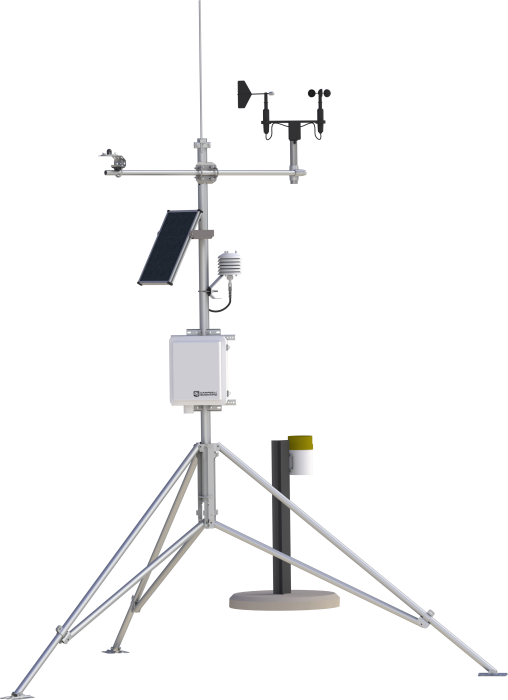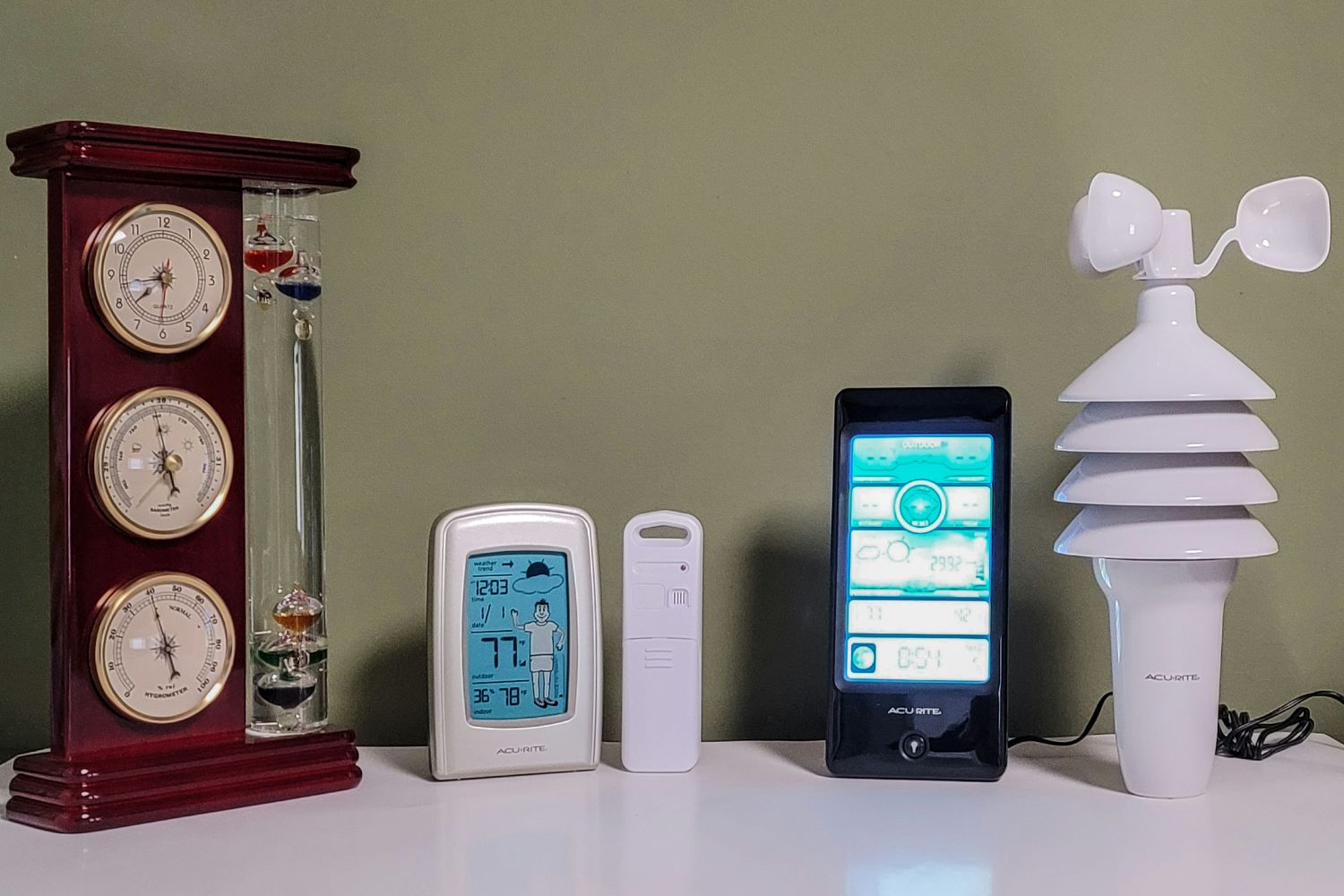Contrasting the most effective Weather Stations of 2024: What Sets Them Apart?
Contrasting the most effective Weather Stations of 2024: What Sets Them Apart?
Blog Article
Discovering the Various Sorts Of Expert Weather Condition Stations for Accurate Data Collection
When it comes to selecting the proper weather terminal for data collection, the market uses a selection of choices customized to different requirements and settings. Allow's explore the subtleties of these expert weather terminals to understand their one-of-a-kind performances and identify the ideal fit for details data collection requirements.
Digital Climate Stations
In the world of meteorological instrumentation, digital weather terminals attract attention as sophisticated devices for accurate information collection and analysis. These advanced terminals are geared up with sensing units that capture a large variety of weather condition criteria such as temperature level, humidity, barometric stress, wind rate, and instructions. The data collected by digital weather condition stations is transmitted wirelessly to a central console or a computer system for real-time surveillance and evaluation.
Among the essential advantages of digital weather terminals is their capability to supply high-resolution data with accuracy and reliability. This degree of accuracy is critical for numerous applications, consisting of agriculture, aeronautics, study, and emergency feedback. In addition, digital climate terminals frequently come with software program that enables customers to picture the data in various formats like graphes and graphs, assisting in simpler analysis and decision-making.
Wireless Weather Condition Stations
Structure on the abilities of digital weather condition stations, cordless weather stations offer boosted benefit and adaptability in information transmission and surveillance. By utilizing cordless modern technology, these weather terminals eliminate the requirement for cumbersome wired connections, permitting very easy setup in numerous locations. The cordless attribute enables real-time information tracking from remote locations, giving meteorologists and weather lovers with instant accessibility to crucial details.
Wireless weather terminals commonly consist of sensors that collect information on temperature level, humidity, barometric stress, wind speed, and direction. These sensing units wirelessly transfer the data to a main console or receiver, where it is processed and presented for evaluation. Some advanced cordless weather terminals can even connect to the net, enabling users to access their weather condition data from another location through computers or mobile phones.

Prosumer Weather Condition Stations
What distinguishes Prosumer Weather Stations from traditional consumer-grade weather terminals? Prosumer Climate Stations bridge the void in between professional-grade and consumer-grade devices, providing advanced attributes and greater accuracy than common home weather terminals. These terminals are developed for weather fanatics, amateur meteorologists, and local business that need more precise information than what consumer models can give.
Prosumer Climate Stations usually include a larger range Home Page of sensing units to determine extra meteorological criteria such as UV index, fallen leave dampness, and soil dampness. They additionally have a tendency to have a higher degree of durability and reliability, making them ideal for lasting outside usage in different ecological problems.


Industrial Weather Condition Stations
Industrial Climate Stations, likewise called meteorological surveillance systems, are specialized tools created for exact and durable weather condition data collection in commercial settings. These terminals are tailored to fulfill the distinct needs of industrial procedures where precise climate info is essential for safety and security, efficiency, and decision-making procedures.
Industrial weather condition terminals are geared up with innovative sensors that can determine a wide variety of atmospheric parameters such as temperature, moisture, wind speed and instructions, barometric stress, and precipitation (Weather Stations). These stations are usually ruggedly developed to hold up against harsh environmental problems generally located in commercial atmospheres
One trick feature of industrial weather condition terminals is their ability to offer real-time data surveillance and evaluation. This allows industrial facilities to expect weather-related threats, maximize like it operations based on weather, and make sure the safety and security of employees and equipment. Additionally, industrial climate terminals can be integrated into existing industrial control systems for smooth data management and automation.
Portable Weather Condition Stations
Unlike stationary industrial weather condition stations, portable weather stations provide versatility and wheelchair for on-the-go information collection in different environmental settings. These small units are developed to be quickly delivered to various places, making them optimal for field research study, emergency response scenarios, farming, building and construction websites, and outside events.
Portable weather stations generally include sensors for gauging criteria such as temperature level, humidity, barometric pressure, wind rate, and wind instructions. Some progressed designs may also feature additional sensors for keeping track of rainfall, solar radiation, and UV degrees. Regardless of their little dimension, mobile weather condition stations can offering trustworthy and accurate data similar to that of larger, fixed stations.
Among the crucial benefits of portable weather condition terminals is their fast deployment and ease of arrangement. They can be operational within mins, permitting for quick data collection and evaluation. In Source addition, these stations can be programmed to transmit real-time data wirelessly, enabling users to keep track of and assess ecological conditions from another location. Generally, portable weather condition stations are important devices for professionals calling for portable, exact, and timely weather details in diverse setups.
Final Thought
In verdict, specialist weather terminals come in different types such as digital, cordless, prosumer, industrial, and portable. By understanding the distinctions in between these types of weather stations, people can make enlightened choices to guarantee they get the most specific and trustworthy weather information for their functions.
)))))
Structure on the abilities of digital weather condition stations, cordless weather condition terminals use enhanced ease and versatility in data transmission and surveillance. Some advanced cordless weather terminals can even link to the internet, permitting individuals to access their weather information remotely using mobile phones or computer systems.
Prosumer Weather Stations bridge the void between consumer-grade and professional-grade devices, offering more advanced functions and higher precision than typical home weather condition terminals. Weather Stations. In general, mobile weather terminals are indispensable devices for professionals needing mobile, precise, and prompt climate info in varied settings
By understanding the distinctions in between these kinds of weather condition terminals, individuals can make informed choices to guarantee they get the most exact and reputable weather condition information for their objectives.
Report this page